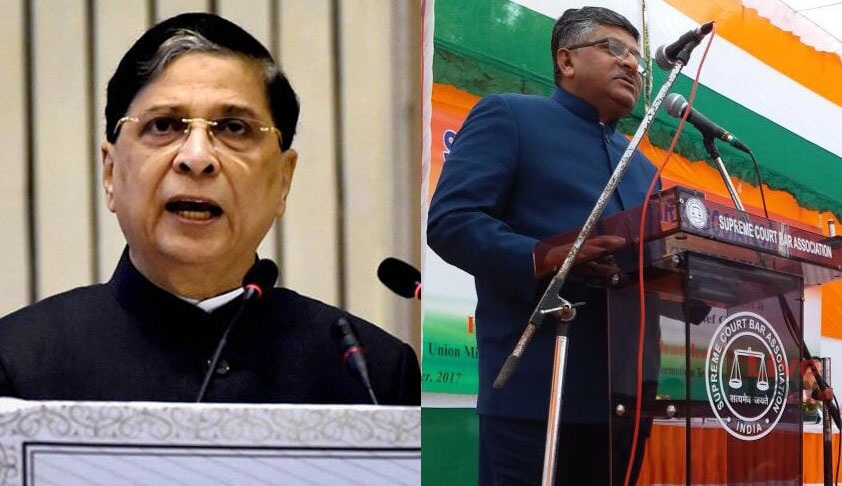Law Day: Chief Justice, Law Minister Lock Horns Over ‘Judicial Overreach’
LIVELAW NEWS NETWORK
27 Nov 2017 11:29 AM IST

Next Story
27 Nov 2017 11:29 AM IST
At the Law Day function held by the Law Commission of India on Sunday, Union Law Minister Ravi Shankar Prasad and Chief Justice of India (CJI) Dipak Misra got into a spat over judicial overreach and ‘repeated crossing over of the constitutional boundaries by the courts’.When Prasad raised the issue of uncalled-for judicial interference under the garb of PILs, CJI Misra, in his sharp...
